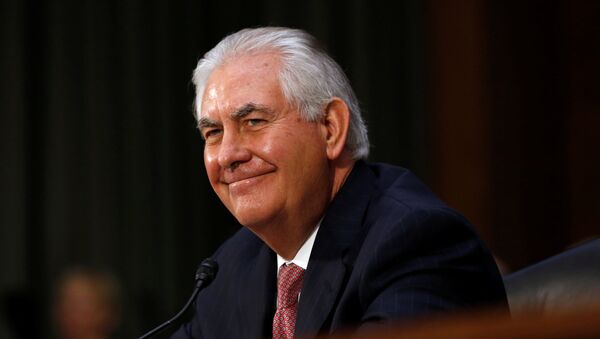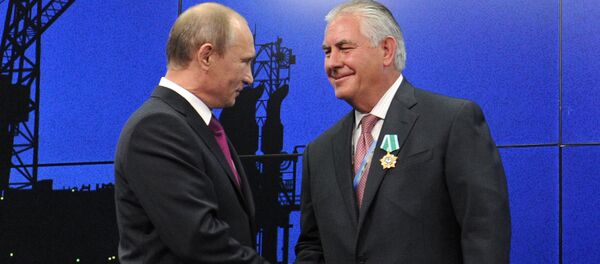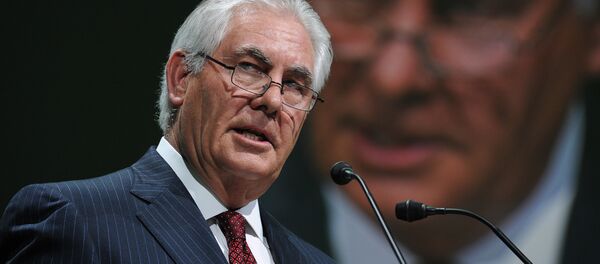WASHINGTON (Sputnik) — On Wednesday, the US Senate in a final vote confirmed Tillerson, the former CEO of Exxon Mobil, as President Donald Trump's secretary of state by a 56 to 43 vote, with Republicans backing the nominee and most Democrats opposing him.
"Donald Trump and Secretary Tillerson will, based on their promises, some contradictory, try to improve relations with Russia and hope to ‘make a deal’ yet undefined,” Blaney, a policy planner for US Secretaries of State Henry Kissinger and Cyrus Vance, said. “But the question all Americans and especially Congress of both parties will ask [is] at what cost to America and the security of Europe.”
Should Tillerson’s deal-making with Russia produce negative outcomes, Congress could pass sanctions legislation supported by such a majority that Trump would be unable to veto, Blaney claimed, a development that has been made more likely by recent bombings in eastern Ukraine.
Blaney suggested that Trump, despite his repeated and consistent calls to improve relations with Russia during his 2016 election campaign, remained a very unpredictable figure to improve relations with Moscow.
“There remains wide distrust of Trump regarding dealing free-handedly with Russia," Blaney said. “Trump on this playground is irrational, as in most else.”
Trump, however, cannot afford to look weak in his dealings with Russian President Vladimir Putin in front of his domestic audience in the United States, Blaney added.
“If the world thinks he caved to Putin it might cost him everything,” Blaney argued.
Putin, Blaney claimed, is playing a clearly reckless game while Trump has been known to do the same, and if efforts to improve Washington-Moscow ties failed, the relationship could deteriorate into a dangerous “zero-sum game” that could lead to a confrontation, Blaney warned.
The best outcome would be for Trump and Putin to make deals on issues of common interest like terrorism, cooperation in science, withdrawal of Russia from eastern Ukraine, and reducing the number of nuclear weapons held by both nations, Blaney concluded.
US-Russia relations soured following disagreements over the crisis in Ukraine and Russia's alleged interference in the 2016 US presidential election. Russian officials have repeatedly denied meddling in Ukraine affairs and have characterized accusations of interfering in the US election as absurd attempts to distract from important domestic issues.
Blaney is a Senior Fellow with the Washington, DC-based Center for International Policy (CIP) and was an American diplomat for more than 20 years, including service as a member of the State Department’s Policy Planning Staff, which was established in 1947 by George Kennan at the dawn of the Cold War.



